Filter by

A History of American Puritan Literature
For generations, scholars have imagined American puritans as religious enthusiasts, fleeing persecution, finding refuge in Massachusetts, and founding 'America'. The puritans have been read as a product of New England and the origin of American exceptionalism. This History challenges the usual understanding of American puritans, offering new ways of reading their history and their literary cult…
- Edition
- -
- ISBN/ISSN
- 9781108878425
- Collation
- -
- Series Title
- -
- Call Number
- -
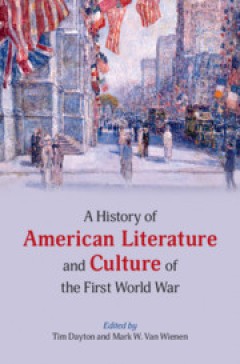
A History of American Literature and Culture of the First World War
In the years of and around the First World War, American poets, fiction writers, and dramatists came to the forefront of the international movement we call Modernism. At the same time a vast amount of non- and anti-Modernist culture was produced, mostly supporting, but also critical of, the US war effort. A History of American Literature and Culture of the First World War explores this fraught …
- Edition
- -
- ISBN/ISSN
- 9781108615433
- Collation
- -
- Series Title
- -
- Call Number
- -
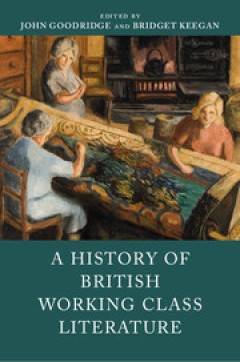
A History of British Working Class Literature
A History of British Working-Class Literature examines the rich contributions of working-class writers in Great Britain from 1700 to the present. Since the early eighteenth century the phenomenon of working-class writing has been recognised, but almost invariably co-opted in some ultimately distorting manner, whether as examples of 'natural genius'; a Victorian self-improvement ethic; or as an …
- Edition
- -
- ISBN/ISSN
- 9781108105392
- Collation
- -
- Series Title
- -
- Call Number
- -
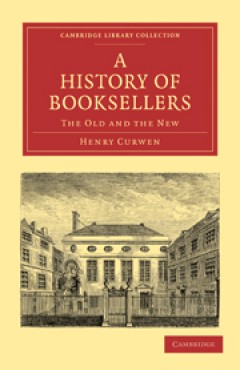
A History of Booksellers The Old and the New
Henry Curwen (1845–1892) was a journalist and author who became editor of the Times of India. First published in 1874, A History of Booksellers aimed at providing an informative but entertaining picture of British bookselling and publishing, by means of 'biographies' of the major publishing houses and their output. He begins with a general survey of publishing and bookselling from Roman times…
- Edition
- -
- ISBN/ISSN
- 9781139198066
- Collation
- -
- Series Title
- -
- Call Number
- -

The men in my life
Gornick on V. S. Naipaul, James Baldwin, George Gissing, Randall Jarrell, H. G. Wells, Loren Eiseley, Allen Ginsberg, Hayden Carruth, Saul Bellow, and Philip Roth and the intimate relationship between emotional damage and great literature.Vivian Gornick, one of our finest critics, tackled the theme of love and marriage in her last collection of essays, The End of the Novel of Love, a National B…
- Edition
- -
- ISBN/ISSN
- 9780262274104
- Collation
- 1 online resource (xiii, 194 pages).
- Series Title
- -
- Call Number
- -
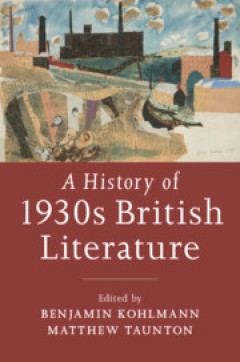
A History of 1930s British Literature
This History offers a new and comprehensive picture of 1930s British literature. The '30s have often been cast as a literary-historical anomaly, either as a 'low, dishonest decade', a doomed experiment in combining art and politics, or as a 'late modernist' afterthought to the intense period of artistic experimentation in the 1920s. By contrast, the contributors to this volume explore the conto…
- Edition
- -
- ISBN/ISSN
- 9781108565592
- Collation
- -
- Series Title
- -
- Call Number
- -
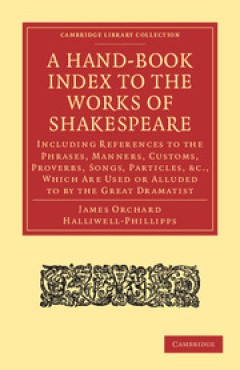
A Hand-Book Index to the Works of Shakespeare
Published in 1866, this is a meticulous, encyclopaedic listing of almost every word, place and character in Shakespeare's works. A must-have for every student of English literature, it is also an unparalleled guide for those left in the dark by Shakespearean English. James Orchard Halliwell-Phillipps (1820–1889), a renowned scholar, antiquarian, and collector of books on Shakespeare, provided…
- Edition
- -
- ISBN/ISSN
- 9780511693045
- Collation
- -
- Series Title
- Cambridge Library Collection - Literary Studies
- Call Number
- -
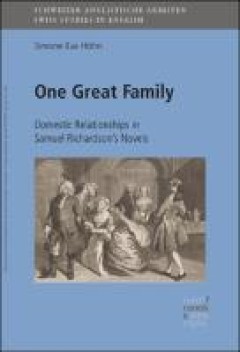
One Great Family : Domestic Relationships in Samuel Richardson’s Novels
This study examines concepts of morality and structures of domestic relationships in Samuel Richardson’s novels, situating them in the context of eighteenth-century moral writings and reader reactions. Based on a detailed analysis of Richardson’s work, this book maintains that he sought both to uphold hierarchical concepts of individual duty, and to warn of the consequences if such hierarch…
- Edition
- -
- ISBN/ISSN
- -
- Collation
- -
- Series Title
- -
- Call Number
- 420
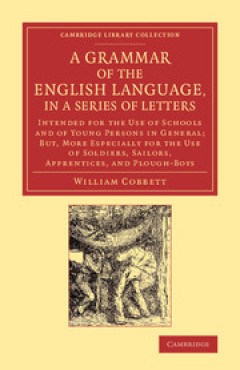
A Grammar of the English Language, in a Series of Letters Intended for the U…
Indefatigable as a writer and reformer on rural and political questions in his native Britain, William Cobbett (1763–1835) wrote the present work during the period he spent as a farmer in the United States. Intended for young people and especially 'soldiers, sailors, apprentices, and plough-boys' (Cobbett had himself been one of the latter), it provides concise and practical explanations of g…
- Edition
- -
- ISBN/ISSN
- 9781107256606
- Collation
- -
- Series Title
- Cambridge Library Collection - Literary Studies
- Call Number
- -
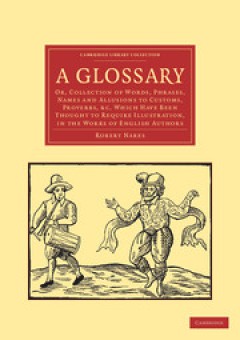
A Glossary Or, Collection of Words, Phrases, Names and Allusions to Customs,…
Originally published in 1822, Robert Nares' glossary of antiquated Elizabethan terms is the result of a personal interest in and love of Elizabethan literature. Nares (1753–1829), well known as a scholar and clergyman, was also a keen philologist and antiquary. This glossary was undertaken in his spare time, and compiled over forty years as he was often occupied with various academic and cler…
- Edition
- -
- ISBN/ISSN
- 9781139093781
- Collation
- -
- Series Title
- Cambridge Library Collection - Literary Studies
- Call Number
- -
 Computer Science, Information & General Works
Computer Science, Information & General Works  Philosophy & Psychology
Philosophy & Psychology  Religion
Religion  Social Sciences
Social Sciences  Language
Language  Pure Science
Pure Science  Applied Sciences
Applied Sciences  Art & Recreation
Art & Recreation  Literature
Literature  History & Geography
History & Geography